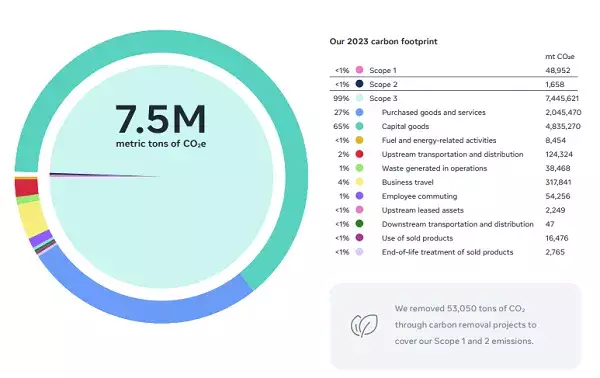Meta Platforms, known for its vast influence in the social media and technology sector, recently released its “Responsible Business Practices Report.” This extensive 144-page document delves into numerous aspects including advancements in artificial intelligence (AI), the development of the metaverse, and corporate accountability in environmental and social realms. However, while the report aims to present a progressive image of Meta, it invites a deeper inquiry into the realities of its claims, the ethical implications of its technological advancements, and the potential risks associated with its expansive agenda.
At the heart of this report lies a strong emphasis on AI technology. Meta asserts its commitment to democratizing access to AI tools, ensuring that advancements are not confined to affluent regions or organizations. However, while the intention of an open-source approach is commendable, there are significant concerns regarding data privacy, security, and the unequal consequences of AI deployment. As AI evolves, so too do the risks associated with its misuse. The notion that broader access will inherently lead to equitable benefits overlooks potential pitfalls where unregulated AI could reinforce existing inequalities, exploit vulnerable populations, or lead to misinformation proliferation.
Moreover, the report showcases Meta’s narrative that its technologies will foster connection and community through immersive experiences like virtual and augmented reality. However, it remains to be seen how these technologies will impact interpersonal relationships in the long run. Will digital interactions enhance our social fabric, or will they create more profound disconnections? The debate over the societal value of technology versus its potential to alienate individuals persists, raising questions about the shifts in human behavior and connection brought about by Meta’s initiatives.
Meta has positioned the metaverse as a transformative evolution in social technology. While this concept is positioned positively, an essential critique concerns the implications of creating virtual worlds that could serve as distractions from real life. In selling a vision of a shared digital existence, the company risks exacerbating issues like addiction to virtual environments and detachment from the physical world. The potential for escapism offers a dual-edged sword; as users engage more with digital worlds, the fundamental necessity for physical community and connection may diminish, posing a risk to mental health.
Moreover, the expansive financial investment in building the metaverse raises important economic questions concerning the direction of resources in a world grappling with urgent issues like climate change and socio-economic disparity. Is the commitment to an immersive digital landscape a responsible allocation of Meta’s wealth and influence, or a distraction from addressing pressing global concerns? Thus, while the metaverse is presented as a grand innovation, it is essential to critically assess the broader implications of such direction.
The report serves as a platform for Meta to highlight its considerable investments in privacy, particularly in the wake of past scrutiny surrounding its data practices. With over $5.5 billion allocated to measures that embed privacy into its products, Meta asserts a commitment to ethical considerations. However, skepticism remains regarding the sincerity of these efforts. Critics argue that financial investments do not always equate to genuine safeguarding against privacy violations. Meticulously designed policies must translate effectively to practice, without falling into the trap of mere rhetoric aimed at rehabilitating corporate image.
Additionally, the report touches upon Meta’s political contributions via its Political Action Committee (PAC) amidst a highly polarized political environment. While the company’s officials have refrained from openly endorsing candidates, the implication that Meta is influencing political landscapes compatible with its corporate interests raises valid ethical concerns. The intersection of technology and politics demands robust scrutiny, as the potential for corporate lobbying to create laws favorable to business interests often supersedes public accountability.
Overall, Meta’s Responsible Business Practices Report attempts to cast a positive light on its initiatives; however, it must be critiqued for the inherent contradictions present in its ambitious goals versus the practical realities and potential risks of implementation. As AI technology and the metaverse promise a future of boundless possibilities, it is crucial for Meta, and its stakeholders, to engage in an earnest dialogue about the ethical implications of their innovations.
In navigating the complex landscape of social technology, the company faces an ongoing challenge: finding balance between pursuing groundbreaking advancements and maintaining robust ethical standards to ensure they do not inadvertently contribute to the very societal issues they aim to address. The task may be daunting, but the future of technology’s role in society hinges on the depth of this engagement.


Leave a Reply